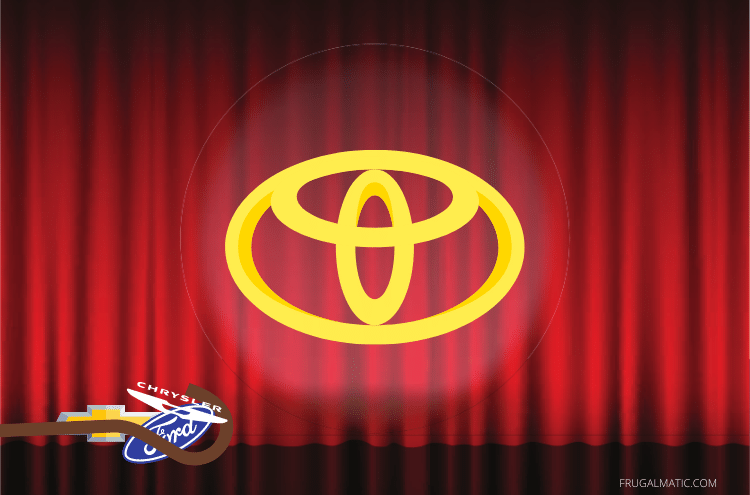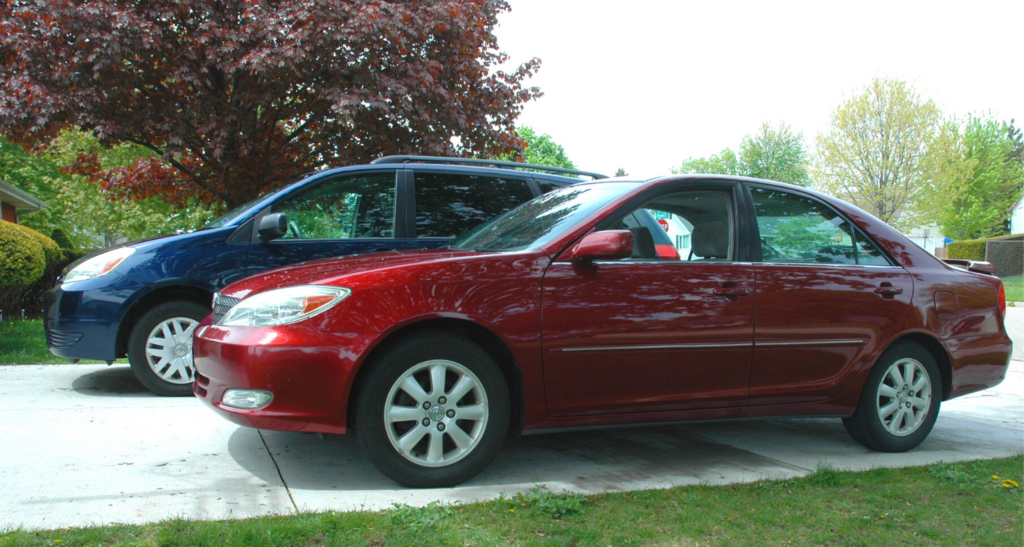This post was last updated on May 10th, 2021 at 02:30 pm
At 9 years old, I learned not to own an American car.
My family bought a new Ford Aerostar, boxy by today’s standards but futuristic looking in the 1980s, at the dawn of suburbia’s minivan revolution. I would have loved the vehicle, except for the grief it caused my parents. They were taking it to the dealership with mechanical problem after mechanical problem—the vibrating steering wheel being the most aggravating. Solving it required replacing the rear axle and differential. Let’s just say it was a good thing the Aerostar was under warranty.
I share this childhood experience not to pick on Ford but to explain how it taught me that one’s choice in vehicles matters. That’s doubly true when buying used vehicles. Yes, you can save a bundle buying used, but only if you buy a reliable car.
Whether it was fair to GM and Chrysler, the Aerostar experience shook my parent’s confidence in all American cars. It proved traumatic enough to propel them toward a lifetime of owning Toyotas, with a couple Hondas mixed in. The switch to Japanese-brand cars ushered in an era of minimal mechanical problems.
For a Toyota, 100,000-plus miles is routine
Over the years, my family owned Toyota Previas, and one of them logged more than 300,000 miles. When the Previa was discontinued, my parents moved to the Sienna, which Toyota continues to make and my parents continue to own.
Every single Toyota in our family far surpassed 100,000 miles with no problem.
It’s no surprise, then, that my wife and I have a 2004 Toyota Sienna with about 165,000 miles. We also have a 2003 Toyota Camry with about 128,000 miles. We acquired the Sienna in 2011 and the Camry in 2016. Besides routine maintenance, the pair rarely go to the shop. (I did have the engine light come on for the Camry once, but it turned out to be a false alarm.)
Of course, there are no guarantees when buying used (because, undoubtedly, somebody has a horror story about buying a used Toyota). No matter what brand you buy, you should take steps to improve your chances of getting a reliable car. Consumer Reports recommends obtaining a report of the vehicle’s history from Carfax or a similar service to check, for example, whether the vehicle has had flood damage. It also recommends hiring a trustworthy mechanic to inspect the vehicle before buying it.
No wonder Consumer Reports highlights Toyota
Consumer Reports regularly publishes lists of the best and worst used cars. (Tip: If you don’t have a Consumer Reports subscription, check out your local library’s digital offerings. There’s a good chance your library carries a subscription, which you can access for free, assuming you have a library card.)
The lists confirm what I already believe about Toyota: It’s a great brand across all types of vehicles. Ten of the 27 cars listed in the Consumer Report’s 2021 “Best of the Best Used Cars” are Toyotas. Actually, 15 of the 27 cars are Toyotas because five of them are Lexus, Toyota’s luxury brand division. Essentially, Toyotas comprise more than half of Consumer Reports “best of the best” list. More than half!
That’s impressive considering the stiff competition.
It’s worth mentioning, too, that only one Toyota appears in the Consumer Reports 2021 list of “Used cars to avoid”: 2018 Toyota Tacoma.
What’s Toyota’s secret? The Toyota Way
All this gushing over Toyota might leave you wondering: Why? Why does Toyota reign supreme when it comes to reliability? I have a three-word response: The Toyota Way.
That’s how the company first described its principles in 2001. “The Toyota Way” is also the name of a book by Jeffery Liker, who offers insight into how the company succeeds by focusing on its long-term interests instead of short-term interests.
The two “pillars” of The Toyota Way are “continuous improvement” and “respect for people.” It sounds simple, but as Liker explains, The Toyota Way takes a great deal of discipline and focus to execute. “Toyota’s strong sense of mission and commitment to its customers, employees, and society is the foundation for all the other principles and the missing ingredient in most companies that try to emulate Toyota,” he writes. In other words, The Toyota Way is not some feel-good slogan. It’s a system practiced by the employees, separating it from not just other car companies but from much of the rest of the corporate world.
Admittedly, I’m no expert on Toyota, let alone car manufacturing. So, I can’t speak to what extent American car makers have reformed their ways since the 1980s. Some people argue they’ve started making better vehicles.

Ongoing lessons from the Aerostar debacle
It is telling, however, that only one American vehicle, the 2018-19 Chevrolet Impala, appears on Consumer Reports’ “best of the best” used car list, while numerous American brands and models populate the “used cars to avoid” list.
More than 30 years after the Aerostar debacle, I still can’t think of a good reason to buy an American car. That’s not to say good American cars don’t exist. I just don’t like the odds. If you’re hoping to maximize the value of your purchase, take a long look at a Toyota. If it’s not for you, fine. But at least you’ll have considered it.
And, by the way, some might say buying a Toyota is un-American, but let the record show Toyota has 10 manufacturing plants in the United States as of 2020.

